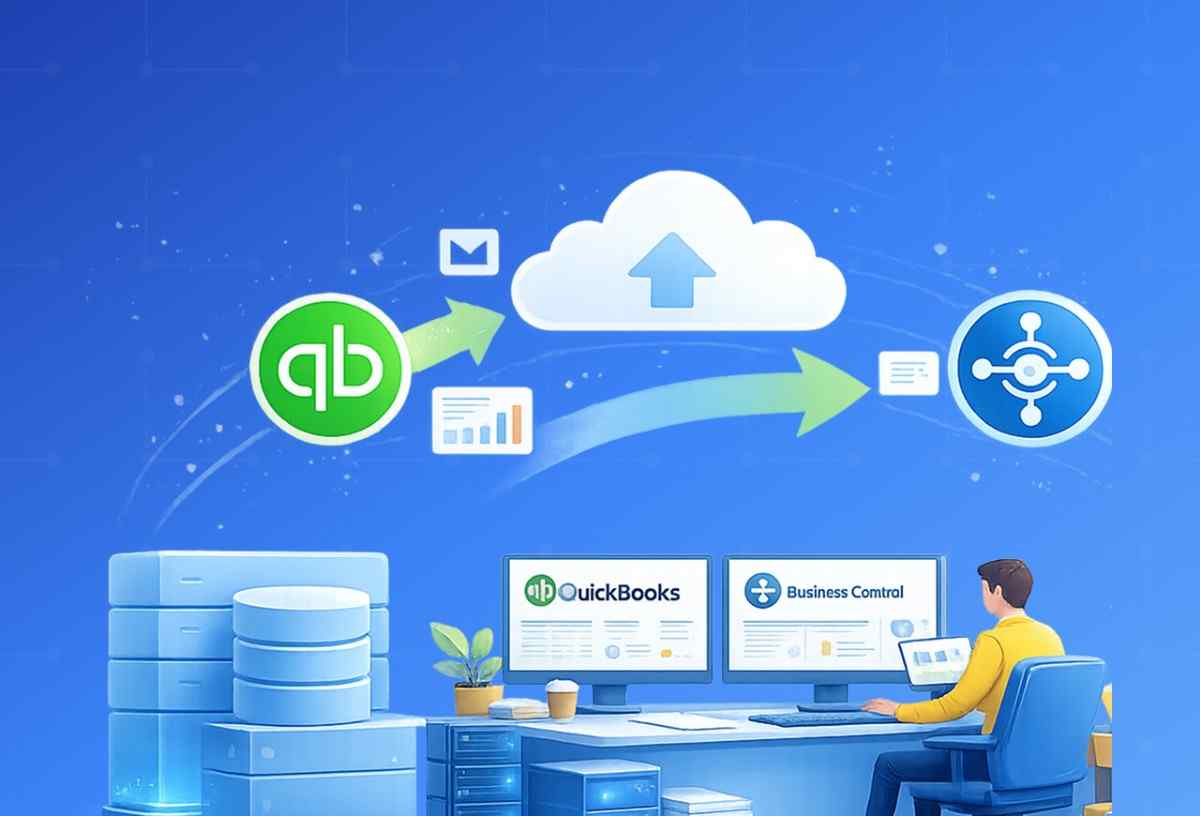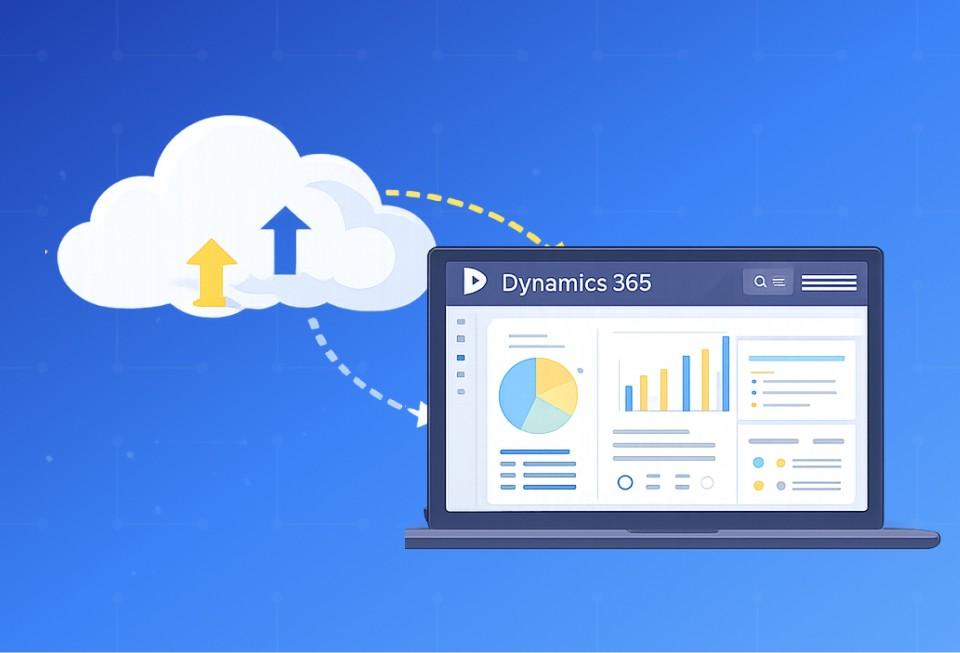What is the Difference Between Business Central and Dynamics 365?
Sep 04, 2023 Aiswarya Madhu
Editor’s Note
The Difference Between Business Central and Dynamics 365 can often be confusing due to overlapping features and functionalities. We’ve written this blog to provide clarity and help businesses make informed decisions about which solution best suits their needs. Whether you're looking to improve customer relationship management with Dynamics 365 CRM or streamline operations with Business Central, this guide aims to break down their key differences and help you choose the right tool for your business.
Microsoft Dynamics 365 vs Business Central: A Comprehensive Comparison
Here are the core differences between Business Central and Dynamics 365, two powerful solutions tailored for distinct business needs.
Core Purpose
Dynamics 365 CRM is primarily aimed at Customer Relationship Management. It enables businesses to manage customer interactions and relationships, facilitating sales processes, customer service tasks, and marketing campaigns with a focus on enhancing customer engagement and satisfaction.
Business Central serves as a comprehensive Enterprise Resource Planning (ERP) solution intended for managing core business operations. It automates and integrates essential functions such as financial management, supply chain operations, project management, and inventory control, resulting in streamlined processes that improve overall efficiency.
Discover More Insights on Related Topics
What is Microsoft Dynamics 365: Know the Inside Out
Discover how Microsoft Dynamics 365 transforms business operations with powerful ERP and CRM solutions. Read more to explore its potential!
8 Reasons to Choose Business Central [With Success Stories]
Microsoft Dynamics 365 Business Central boosts financial management, streamlines operations, and ensures compliance. Explore its benefits and real-world success stories.
Key Capabilities
Dynamics 365 CRM offers a range of capabilities, including:
- Sales Automation: D365 for sales tracks leads, opportunities, and customer interactions, enabling sales teams to work more efficiently and effectively.
- Customer Service: Dynamics 365 CRM Customer Service features robust ticketing systems, Service Level Agreement (SLA) tracking, and issue resolution tools that help improve customer satisfaction.
- Marketing Automation: Microsoft Dynamics 365 Marketing automation facilitates campaign management, email marketing, and social media integration to enhance outreach efforts and customer engagement.
- Field Service Automation: Dynamics CRM Field Service enables efficient onsite service delivery by optimizing work order management and resource scheduling to enhance response times and workforce productivity.
On the other hand, Microsoft Business Central ERP excels with its broad capabilities, including:
- Financial Management: Automates accounting processes, cash flow management, and financial reporting, ensuring accuracy and compliance.
- Supply Chain Management: Monitors inventory levels, automates purchase orders, and optimizes stock levels to meet operational demands efficiently.
- Project Management: Manages project budgets, resources, and timelines, ensuring that projects are delivered on time and within budget.
Target Audience
Microsoft Dynamics 365 is ideal for companies with 50-300 employees, where 10-20% are in customer-facing roles, such as sales or customer service. Smaller businesses with at least five customer-facing employees can also benefit. Industries like manufacturing, retail, consumer goods, and professional services are well-suited for Dynamics 365. Companies relying on both new and repeat business, with small IT teams, and a focus on enhancing customer experiences, are the best fit for this solution.
Conversely, Dynamics 365 Business Centralis used by 11,411 companies, primarily in the United States (28%), with other significant users in Germany (9%), United Kingdom (8%), and Canada (6%). The majority of these companies are medium-sized, with 54% having 50-200 employees and 55% generating revenues below $50 million. The most prominent industries using Dynamics 365 Business Central are Information Technology and Services (17%) and Computer Software (8%). Dynamics 365 Business Central holds a 1.15% market share in the ERP space.
Unlock the Full Potential of Your Business Today!
Whether you're looking for the robust ERP capabilities of Business Central or the advanced CRM functionalities of Dynamics 365, our Microsoft Dynamics 365 consulting services are designed to tailor the perfect solution for your business needs.
Integration with the Microsoft Ecosystem
Both Microsoft Dynamics 365 CRM and Business Central offer seamless integration within the Microsoft ecosystem, connecting effortlessly with applications such as Office 365, Outlook, Teams, and Power BI.
Office 365 Integration
Dynamics 365 CRM enables users to access customer data directly within familiar apps like Excel and Word, simplifying document management and reporting. Business Central offers similar integration, particularly benefiting finance and operations teams with its collaborative features.
Outlook Integration
In Outlook, Dynamics 365 CRM allows users to seamlessly track customer communications, linking emails to customer records. Business Central complements this by enabling real-time access to customer data from the inbox, streamlining interactions without the need to switch applications. This unified experience improves customer engagement and operational productivity.
Teams Collaboration
Both systems capitalize on Microsoft Teams to foster better communication. Dynamics 365 CRM empowers sales and service teams to collaborate effectively with customer insights embedded within Teams. Business Central extends this capability by allowing employees to interact with real-time operational data, making Teams a hub for daily operations.
Power BI Insights
Through integration with Power BI, Dynamics 365 CRM provides advanced data analytics to drive informed decision-making. Business Central follows suit, allowing businesses to generate actionable insights from operational data, enhancing strategy development and overall efficiency.
Deployment Options
Dynamics 365 CRM offers flexible deployment options. The cloud-based solution is the most popular, providing easy access from any location, predictable subscription costs, and automatic updates. For businesses that need both local control and cloud benefits, hybrid deployment allows sensitive data to stay on-premises while leveraging cloud scalability for other operations. Lastly, on-premises deployment provides maximum data control and customization, ideal for organizations in regulated industries needing strict compliance and data sovereignty.
Business Central offers similar flexibility with cloud deployment, which is widely favored for its ease of use, scalability, and Microsoft-managed updates and security. For businesses preferring full control over their infrastructure, on-premises deployment allows seamless integration with existing systems while ensuring data control and compliance with regulatory requirements. This option is ideal for companies with established IT frameworks or stringent data regulations.
Spice Up Your Knowledge Base with These Reads
From Horizontal to Vertical CRM [Is Dynamics 365 the Ideal Fit?]
The era of generic CRMs is over. Vertical CRMs, like Dynamics 365, offer tailored solutions for specific industries, making them the new standard. Discover why Dynamics 365 is the perfect fit for your business.
Copilot in Business Central [Top 16 Questions Answered]
Discover how Microsoft Copilot in Business Central boosts productivity and streamlines business operations with AI-powered automation.
Scalability & Customization
Dynamics 365 CRM offers extensive customization options, including adaptive workflows through Power Automate, custom fields, and personalized dashboards for tailored business processes. Its integration with Microsoft tools like Teams, Outlook, and Power BI enables seamless operations across departments. The platform's scalability is designed to support businesses of all sizes, with a subscription-based model that allows for flexibility as companies grow. Its global reach and localization capabilities, with support for multiple languages and currencies, make it an ideal choice for organizations expanding their global footprint while ensuring compliance with local regulations.
Business Central's modular design allows businesses to start with essential functionalities, like finance and inventory management, and expand as needed by adding modules such as sales and project management. The platform’s customization options include tailored business processes, personalized user interfaces, and seamless integration with Microsoft Power Apps and Power Automate for enhanced automation. Third-party integrations from AppSource further enhance its capabilities, allowing businesses to incorporate industry-specific functionalities. This modular approach, combined with flexible upgrades, enables organizations to scale efficiently as their needs evolve.
Which One Is Right for Your Business?
If your primary need is managing financials, inventory, and production, then Business Central implementation is the right choice for you. It’s a strong ERP platform that can handle the core operational needs of small to mid-sized businesses while offering basic sales support.
However, if your business is focused on building customer relationships, tracking leads, and driving marketing campaigns, Dynamics 365 CRM implementation is the more suitable option. It provides the advanced tools you need for sales and customer management.
Can You Use Both?
Still unsure which solution to choose? No problem. Business Central and Dynamics 365 CRM have a pre-built integration, allowing businesses to enjoy the best of both worlds. This means you can use Business Central for ERP functions while integrating Dynamics 365 CRM for full-fledged customer relationship and sales management features. Together, they create a unified solution to streamline operations and enhance sales processes.
Conclusion
The choice between Dynamics 365 CRM and Business Central depends on your business priorities:
- If your focus is on sales, customer service, and marketing, then Dynamics 365 CRM is the right choice.
- If you need a complete ERP solution that handles financials, operations, and inventory, Business Central will better suit your needs.
Both solutions are powerful in their respective areas, and for businesses requiring both robust CRM and ERP capabilities, integrating Dynamics 365 CRM with Business Central provides the best of both worlds.
Ultimately, the difference between Business Central and Dynamics 365 comes down to whether you prioritize customer relationship management or operational efficiency.
Frequently Asked Questions
Recent Posts

QuickBooks to Business Central Migration: A Complete Guide
Mar 02, 2026

AI in Dynamics 365 CE [Where It Actually Saves Money and How to Use It]
Feb 25, 2026

Business Central On-Premises to Online Migration [A Complete Guide]
Feb 20, 2026
Category
Our Expertise
About Author

Aiswarya Madhu
Aiswarya Madhu is an experienced content writer with extensive expertise in Microsoft Dynamics 365 and related Microsoft technologies. With over four years of experience in the technology domain, she has developed a deep understanding of Dynamics 365 applications, licensing, integrations, and their role in driving digital transformation for organizations across industries.
Never Miss News
Want to implement Dynamics 365?
We have plans which will meet your needs, and if not we can tweak them around a bit too!


